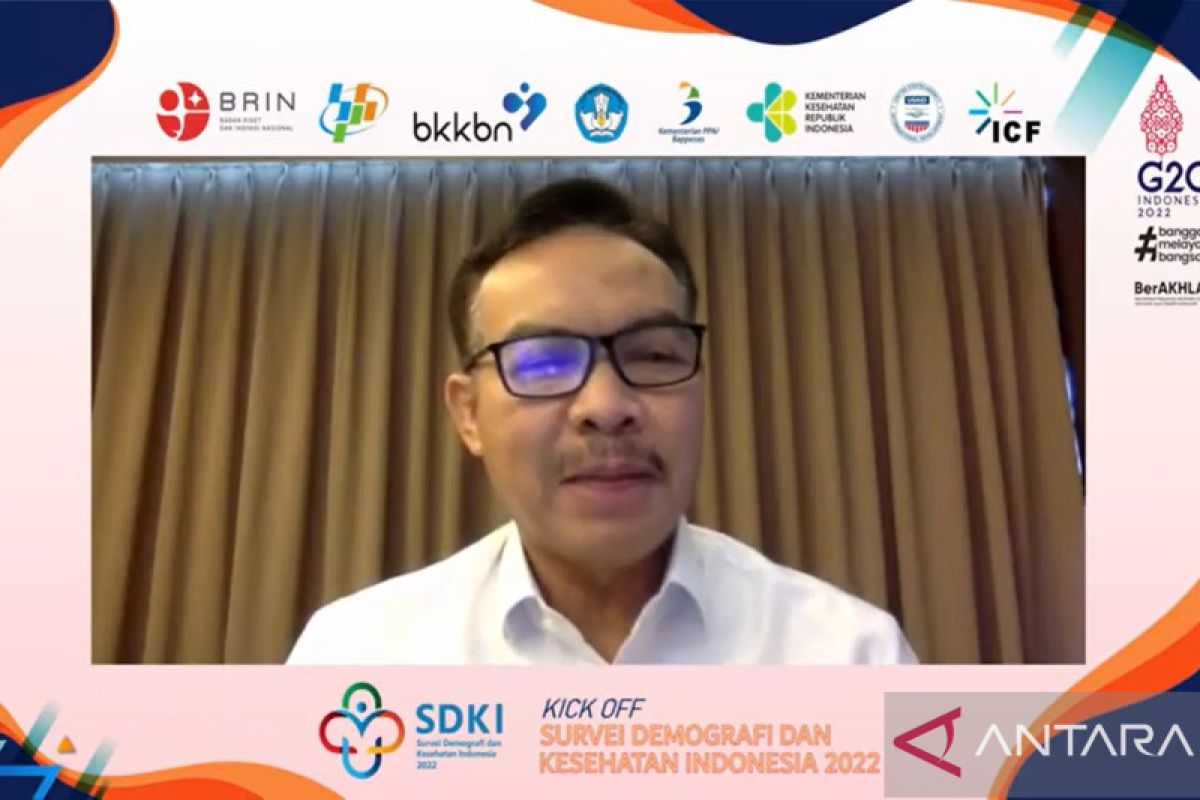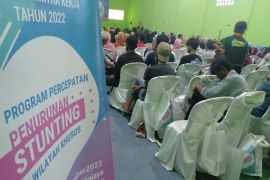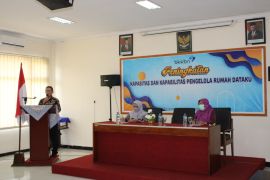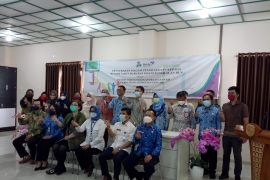In fact, upon being asked whether they wanted to get pregnant again this year, the answer is noJakarta (ANTARA) - Less than 30 percent of Indonesian women have expressed an interest in participating in the Family Planning (KB) program after giving birth, the National Population and Family Planning Agency has said.
"Then, only 29 percent of mothers who partake in family planning right away. In fact, upon being asked whether they wanted to get pregnant again this year, the answer is no. But if you ask again whether you want to use contraception, the answer is also no," head of the agency Hasto Wardoyo informed at the launch of the 2022 Indonesian Demographic and Health Survey, here on Thursday.
He expressed regret over the low interest in family planning, saying contraception can help families plan and space births to prevent stunting in children.
"In addition to being closely correlated with stunting, as the chief executive of the Stunting Reduction Acceleration Program, the (agency) has also stressed that birth spacing is also related to autism in children," he said.
The long-term adverse impact of stunting, such as a decline in children's cognitive abilities, subpar growth, and susceptibility to disease, can affect the country's development, he added. This is because stunting reduces productivity and impedes the creation of good human resources.
"Unfortunately, the lack of interest in family planning is also coupled with the number of people who want family planning but do not get the service (unmet need), which has increased during the COVID-19 pandemic," he said.
About 4.8 million mothers give birth every year. There are also as many as 2 million married couples, with 1.6 million confirmed to be pregnant in the first year of marriage.
However, Wardoyo pointed out, Indonesia's total birth rate is already at 2.24 percent. It has already met the 2.1-percent target that was set by the government for 2024 in order for the state to develop quality human resources.
With the increasing number of births, accelerating the use and availability of contraceptives is very important so that President Joko Widodo’s (Jokowi's) goal of developing a great generation by 2045 can be realized, he added.
"Of course, all of this is to support Mr. President Jokowi's program for (pursuing the development of) great human resources for (realizing an) advanced Indonesia, so the 2022 IDHS survey is very important because all of us need it," he said.
Meanwhile, deputy for family planning and reproductive health at the Population and Family Planning Agency, Eni Gustina, said the agency is targeting to get 70 percent of pregnant women to join the postpartum family planning program.
To improve the quality of the state's human resources, it is necessary to put in efforts to change the mindset of prospective brides and grooms who still think that they must have children immediately after getting married.
This can be done through the provision of assistance that can educate people and improve family health for the better, including by introducing short- and long-term family planning to the public. Therefore, the agency has prepared 200 thousand teams to guide families.
“So, assistance is to oversee all pregnancies in order to give birth to babies with good (health) quality," Gustina said.
Related news: Plan births to prevent boom in non-productive population: BKKBN
Related news: BKKBN asks teenagers to plan their future carefully
Related news: BKKBN educates adolescents about stunting through Elsimil app
Translator: Hreeloita D S, Mecca Yumna
Editor: Sri Haryati
Copyright © ANTARA 2022












